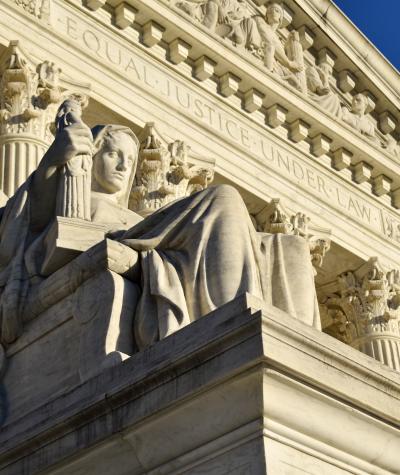UPDATE: On May 23, 2024, the U.S. Supreme Court overturned a unanimous federal three-judge court ruling that had ordered the redrawing of South Carolina’s 1st Congressional District for discriminating against Black voters. Read Campaign Legal Center's statement here.
Our democracy is meant to be of, by, and for the people — meaning voters have a right to be free from discrimination and to make their voices heard.
In January, a federal court panel unanimously ruled that South Carolina used racial gerrymandering to discriminate against Black voters in the state’s 1st Congressional District — a clear affront to the ideal of an inclusive democracy.
Last week, the Supreme Court heard oral argument in a case, Alexander v. South Carolina State Conference of NAACP, appealing that unanimous federal court ruling.
There’s a reason a federal court already unanimously struck down South Carolina’s 1st Congressional District: It’s a clear example of a racial gerrymander that made race the driving force in line-drawing decisions and harmed Black South Carolinians.
Let’s take a step back: What is racial gerrymandering?
According to Supreme Court precedent, lawmakers cannot predominantly consider race when drawing political maps absent a compelling reason to do so — like complying with the Voting Rights Act by allowing Black voters and other voters of color to exercise political power and elect a representative of their choice.
Racial gerrymandering occurs, then, when lawmakers primarily use race to draw districts without a compelling reason to do so. The practice harms Black voters, perpetuating a lack of representation that has a history dating back to Jim Crow.
In Alexander, South Carolina is arguing that they did not racially gerrymander Black voters, but instead engaged in partisan gerrymandering to lock in a 6-1 GOP majority in the state’s congressional delegation.
That’s plain wrong. Black South Carolinians deserve to choose their own representatives — not the other way around.
And setting aside the reality that partisan gerrymandering is despicable in and of itself, self-interested politicians should not be allowed to weaken the Constitution’s ban on racial gerrymandering by using partisan gerrymandering as a guise to discriminate against Black voters.
Earlier this year, the Supreme Court’s Allen v. Milligan decision validated Section 2 of the Voting Rights Act. We hope the Supreme Court will once again side with voters in rejecting this attack on protections against racial gerrymandering — and, by extension, voting rights.
In August 2023, Campaign Legal Center joined a friend-of-the-court brief filed by the Lawyers Committee for Civil Rights Under Law and other voting rights organizations urging the Supreme Court to uphold the lower court’s ruling and avoid weakening the protections against racial gerrymandering enshrined in the Fourteenth Amendment to the U.S. Constitution.

